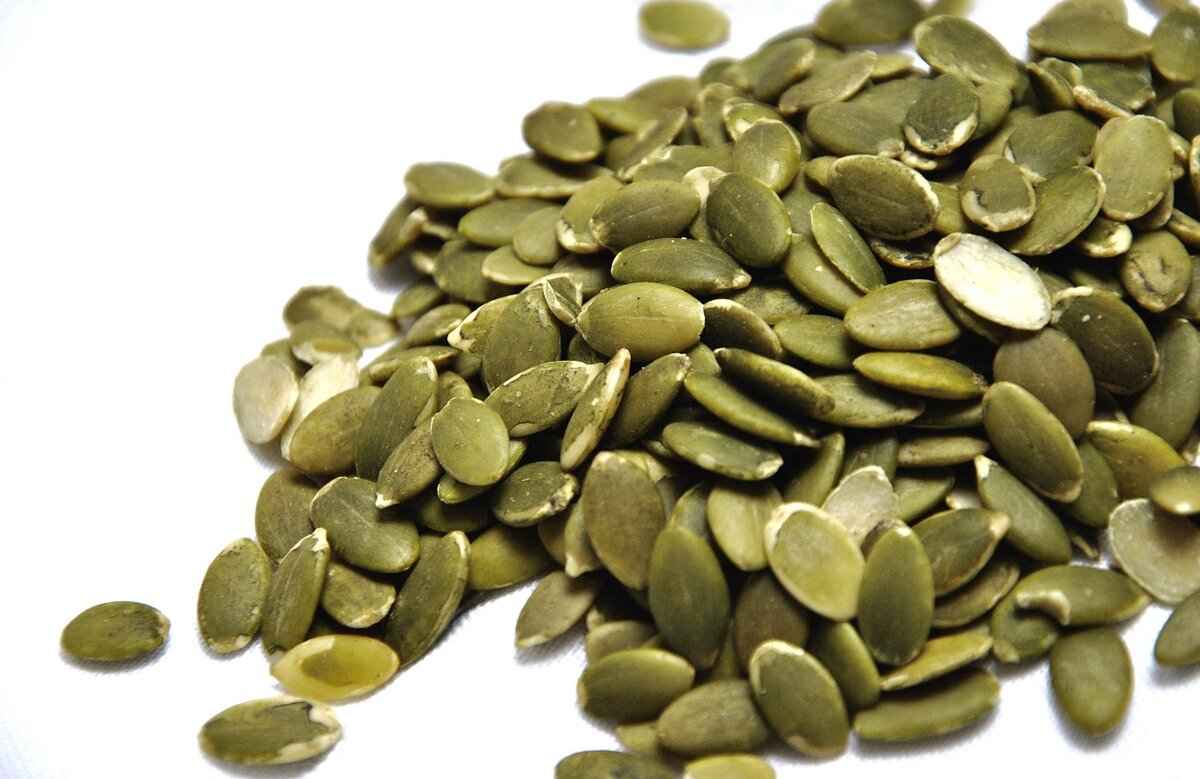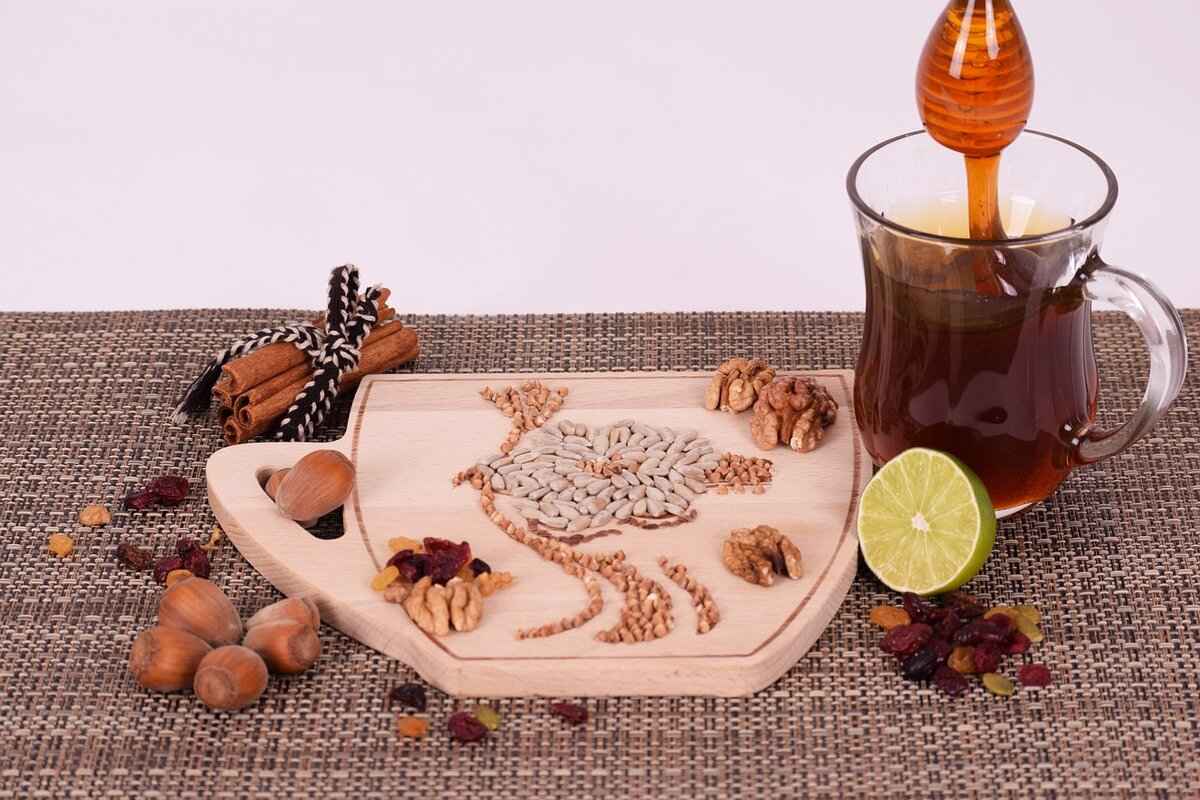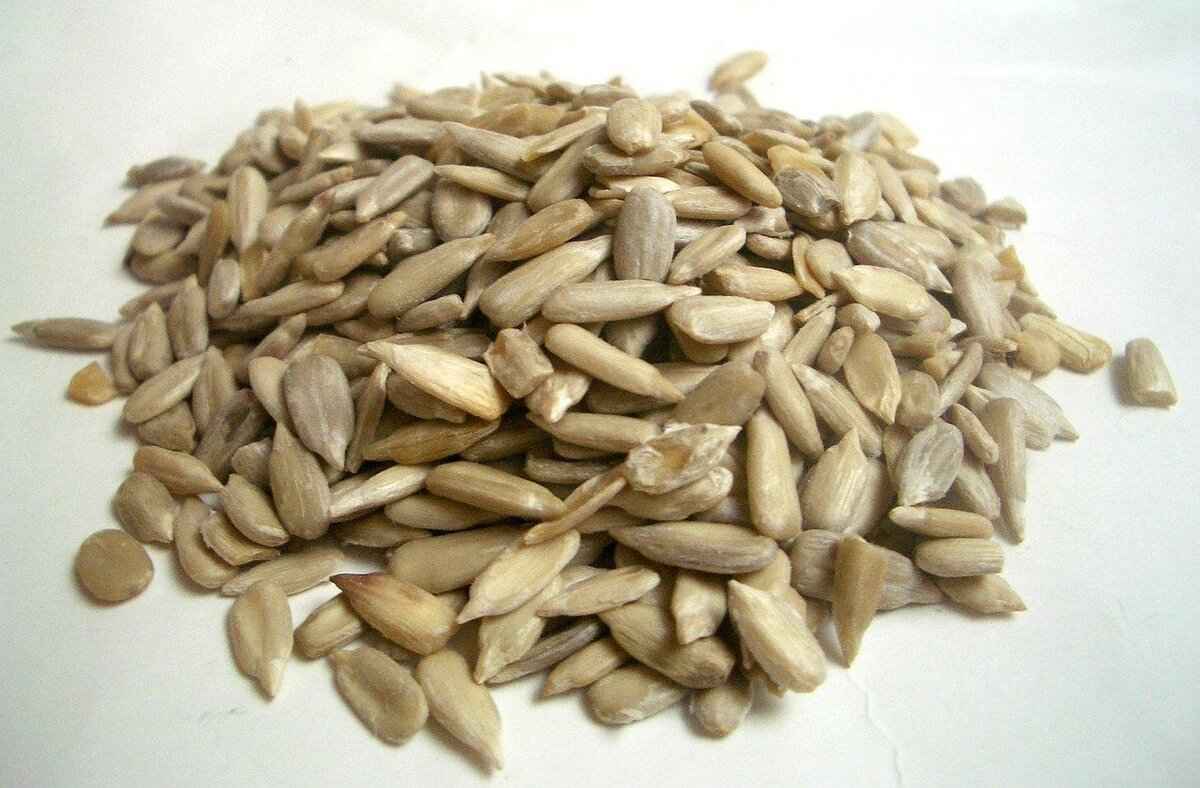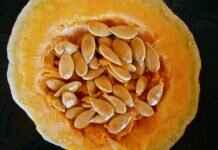Chia seeds have gained immense popularity in the health community due to their impressive nutritional profile and potential weight loss benefits. This article delves into the calorie content of chia seeds, their numerous health advantages, and how they can support weight management for those conscious of their health.
Chia seeds are small, nutrient-dense seeds harvested from the Salvia hispanica plant, which is native to Mexico and Guatemala. These seeds are celebrated for their rich nutrient content and versatility, making them a staple in many diets around the world.
Chia seeds are remarkably low in calories, containing approximately 58 calories per tablespoon. This low-calorie count makes them an ideal addition for individuals aiming to manage their weight while still enjoying a variety of nutritious foods.
Rich in essential nutrients, chia seeds are an excellent source of:
- Fiber: Aids in digestion and promotes a feeling of fullness.
- Protein: Supports muscle health and repair.
- Omega-3 Fatty Acids: Beneficial for heart health.
- Vitamins and Minerals: Including calcium, magnesium, and phosphorus.
This combination of nutrients makes chia seeds a powerhouse for overall health and wellness.
The high fiber content in chia seeds can significantly assist in weight loss. Fiber promotes satiety, helping to curb hunger and reduce overall calorie intake. By incorporating chia seeds into meals, individuals can manage their weight more effectively.
The soluble fiber in chia seeds absorbs water and expands in the stomach, creating a sensation of fullness. This expansion can lead to a decrease in appetite, encouraging individuals to consume fewer calories throughout the day.
Chia seeds can easily replace higher-calorie ingredients in recipes, providing a nutrient-dense option without sacrificing flavor. For instance, they can be used as a thickening agent in smoothies or as an egg substitute in baking, contributing to a healthier meal plan.
Incorporating chia seeds into your diet is simple and versatile. Here are some easy ways to enjoy them:
- Sprinkling on salads for added crunch and nutrition.
- Blending into smoothies for a creamy texture.
- Using in baking recipes, such as muffins or energy bars.
Chia seeds can be featured in a variety of delicious recipes, including:
- Chia Pudding: A simple mix of chia seeds and your choice of milk, left to thicken overnight.
- Smoothies: Blend chia seeds into your favorite fruit smoothie for added nutrition.
- Energy Bars: Combine chia seeds with nuts and dried fruits for a healthy snack.
While chia seeds are generally safe for most people, moderation is essential. Excessive consumption can lead to digestive issues due to their high fiber content. It is advisable to gradually increase intake and drink plenty of water.
Nutritionists and dietitians frequently recommend chia seeds as part of a balanced diet. They highlight the seeds’ ability to provide essential nutrients while supporting weight management goals effectively.
Chia seeds are widely available and can be found in health food stores, supermarkets, and online retailers. This accessibility makes it easy for consumers to incorporate this nutritious food into their diets.

What Are Chia Seeds?
Chia seeds are incredibly small, black seeds that originate from the Salvia hispanica plant, which is native to the regions of Mexico and Guatemala. These seeds have gained immense popularity in recent years, not just for their nutritional benefits but also for their versatility in various culinary applications. They have been a staple in the diets of ancient civilizations, such as the Aztecs and Mayans, who valued them for their energy-boosting properties and health benefits.
Chia seeds are often praised for their nutritional profile, which includes a rich source of essential nutrients. They are packed with omega-3 fatty acids, fiber, protein, and various vitamins and minerals, making them a beneficial addition to any diet. The seeds are also gluten-free, making them suitable for those with gluten sensitivities or celiac disease.
One of the most remarkable aspects of chia seeds is their ability to absorb liquid. When mixed with water or any other liquid, they can swell up to ten times their original size, forming a gel-like consistency. This property not only enhances their texture in recipes but also contributes to their satiety factor, helping individuals feel fuller for longer periods. This can be particularly beneficial for those looking to manage their weight or curb unhealthy snacking.
In terms of caloric content, chia seeds are relatively low, containing approximately 58 calories per tablespoon. This makes them an excellent choice for anyone who is mindful of their caloric intake while still seeking to incorporate nutrient-dense foods into their meals. The combination of low calories and high nutritional value makes chia seeds an ideal food for health-conscious individuals.
Chia seeds can easily be integrated into a variety of dishes. They can be sprinkled on top of salads, blended into smoothies, or used as an egg substitute in baking. Their neutral flavor allows them to complement both sweet and savory recipes, making them a versatile ingredient in the kitchen.
Many people enjoy making chia pudding, a popular dish that showcases the seeds’ unique texture. By combining chia seeds with milk or a dairy-free alternative and letting them sit for several hours, you can create a delicious and nutritious pudding that can be flavored with fruits, nuts, or sweeteners of your choice.
Despite their numerous benefits, it’s essential to consume chia seeds in moderation. While they are generally safe for most people, excessive consumption may lead to digestive discomfort due to their high fiber content. It’s advisable to gradually introduce chia seeds into your diet to allow your digestive system to adjust.
Nutritionists and health experts often recommend incorporating chia seeds into a balanced diet, emphasizing their role in providing essential nutrients while supporting overall health. With their myriad of health benefits and culinary versatility, chia seeds are indeed a superfood worth adding to your pantry.

How Many Calories Are in Chia Seeds?
Chia seeds have gained immense popularity in the health and wellness community, primarily due to their impressive nutritional profile and low calorie content. These tiny seeds are packed with nutrients while being remarkably low in calories, making them a fantastic addition to any diet, especially for those aiming for weight management.
Chia seeds are notably low in calories, containing approximately 58 calories per tablespoon. This low-calorie count makes them an excellent choice for individuals looking to manage their weight without sacrificing essential nutrients. When incorporated into meals, they provide a sense of fullness, which can help curb the appetite and reduce overall calorie intake.
In addition to being low in calories, chia seeds are nutrient-dense, offering a wide array of health benefits. They are high in fiber, protein, and healthy fats, which are crucial for maintaining a balanced diet. The fiber content, in particular, plays a significant role in weight management by promoting satiety and reducing hunger pangs.
- Fiber: Chia seeds contain about 5 grams of fiber per tablespoon, which helps to promote digestive health and keeps you feeling full longer.
- Protein: They offer a plant-based protein source, making them ideal for vegetarians and vegans.
- Omega-3 Fatty Acids: Chia seeds are rich in alpha-linolenic acid (ALA), a type of omega-3 fatty acid that supports heart health.
- Vitamins and Minerals: They provide essential nutrients like calcium, magnesium, and phosphorus.
The unique properties of chia seeds make them particularly beneficial for weight loss. The soluble fiber in chia seeds absorbs water and expands in the stomach, creating a sensation of fullness that can help reduce overall food consumption. This natural appetite suppressant can be a valuable tool for those looking to cut back on calories without feeling deprived.
Incorporating chia seeds into your meals is simple and versatile. Here are some practical ways to enjoy them:
- Add to Smoothies: Blend chia seeds into your favorite smoothies for a nutrient boost.
- Sprinkle on Salads: Use chia seeds as a topping for salads to enhance texture and nutrition.
- Make Chia Pudding: Combine chia seeds with your choice of milk and sweeteners, let it sit overnight, and enjoy a delicious pudding.
- In Baking: Substitute chia seeds for eggs in baking recipes to create healthier options.
While chia seeds are generally safe for most people, it is important to consume them in moderation. Due to their high fiber content, excessive intake can lead to digestive discomfort. It is advisable to start with small amounts and gradually increase your intake to allow your body to adjust.
Nutritionists often recommend chia seeds as part of a balanced diet, highlighting their ability to provide essential nutrients while supporting weight management goals. Their low-calorie count, combined with their nutrient density, makes them a valuable addition to any healthy eating plan.
In summary, chia seeds are a nutrient-rich, low-calorie food that can support weight loss efforts. Their versatility and health benefits make them an excellent choice for anyone looking to enhance their diet.

What Nutrients Do Chia Seeds Provide?
Chia seeds, often hailed as a superfood, are not only versatile but also packed with a multitude of nutrients that contribute significantly to overall health. These tiny seeds, derived from the Salvia hispanica plant, are a rich source of essential vitamins and minerals that play vital roles in bodily functions. Below, we delve into the key nutrients found in chia seeds and their associated health benefits.
- Fiber: Chia seeds are exceptionally high in dietary fiber, with about 11 grams per ounce. This fiber aids in digestion, promotes a feeling of fullness, and helps regulate blood sugar levels.
- Protein: Comprising around 4 grams of protein per ounce, chia seeds are an excellent plant-based protein source, essential for muscle repair and growth.
- Omega-3 Fatty Acids: Rich in alpha-linolenic acid (ALA), chia seeds provide a plant-based source of omega-3 fatty acids, which are crucial for heart health and reducing inflammation.
- Vitamins: Chia seeds contain several essential vitamins, including B vitamins (such as B1, B2, and B3) that support energy metabolism and overall health.
- Minerals: These seeds are a good source of important minerals such as calcium, magnesium, and phosphorus, which are vital for bone health and metabolic processes.
In addition to these nutrients, chia seeds are low in calories, making them an ideal addition to a weight loss diet. With only about 58 calories per tablespoon, they provide a nutrient-dense option that can help individuals feel satisfied without consuming excessive calories.
Moreover, the unique gel-like consistency that chia seeds acquire when soaked in liquid enhances their utility in various recipes, allowing for creative culinary applications. This transformation not only adds texture but also amplifies their health benefits by making the nutrients more bioavailable.
The myriad of nutrients found in chia seeds contributes to several health benefits:
- Heart Health: The omega-3 fatty acids in chia seeds can help lower cholesterol levels and reduce the risk of heart disease.
- Weight Management: The high fiber content promotes satiety, helping to curb appetite and reduce overall calorie intake.
- Bone Strength: With significant amounts of calcium and phosphorus, chia seeds support bone density and health.
- Digestive Health: The soluble fiber in chia seeds aids digestion and can prevent constipation.
Furthermore, chia seeds are incredibly versatile and can be easily incorporated into various diets. They can be added to smoothies, oatmeal, salads, and baked goods, enhancing not only the nutritional profile but also the taste and texture of meals.
In summary, chia seeds are a powerhouse of essential nutrients that support overall health and wellness. Their unique combination of fiber, protein, omega-3 fatty acids, vitamins, and minerals makes them a valuable addition to any diet, particularly for those looking to improve their health or manage their weight effectively.

Do Chia Seeds Help with Weight Loss?
Chia seeds have gained popularity as a superfood, particularly among those seeking to manage their weight. Their unique composition makes them an excellent addition to a balanced diet. This section delves into how chia seeds can aid in weight loss and the science behind their effectiveness.
The effectiveness of chia seeds in aiding weight loss can be attributed to their high fiber content. Fiber plays a crucial role in promoting feelings of fullness, which can lead to reduced calorie intake. One ounce of chia seeds contains about 11 grams of fiber, which is over one-third of the recommended daily intake for adults.
The soluble fiber present in chia seeds absorbs water and forms a gel-like substance in the stomach. This process not only slows down digestion but also extends the feeling of fullness after meals. As a result, individuals may find themselves eating less frequently, which can significantly contribute to weight loss.
Many studies have shown that foods high in fiber, like chia seeds, can effectively enhance satiety. When consumed, chia seeds expand in the stomach, which can lead to a reduced desire to eat. This mechanism is particularly beneficial for those who struggle with portion control or frequent snacking.
Incorporating chia seeds into your meals can be a strategic way to replace higher-calorie ingredients. For instance, they can be added to smoothies, yogurt, or salads, providing a nutrient-dense alternative that supports weight management without sacrificing flavor. This versatility makes chia seeds an attractive option for those looking to lose weight.
- Chia Pudding: Mix chia seeds with almond milk and let them sit overnight for a delicious breakfast.
- Smoothies: Blend chia seeds into your favorite smoothie for added nutrition.
- Baking: Use chia seeds in baking recipes as a healthy substitute for eggs.
While chia seeds are generally safe for consumption, it’s important to eat them in moderation. Their high fiber content can lead to digestive discomfort if consumed in excessive amounts. It’s advisable to gradually introduce them into your diet to allow your digestive system to adjust.
Nutritionists often endorse chia seeds as a beneficial component of a weight loss plan. They emphasize that while chia seeds can support weight loss efforts, they should be part of a comprehensive diet that includes a variety of foods. Balancing chia seeds with other nutrient-dense foods can enhance overall health and well-being.
Chia seeds are widely available in health food stores, supermarkets, and online retailers. When purchasing, it’s advisable to choose organic options to ensure quality and maximize health benefits.
In summary, chia seeds are a valuable addition to any weight loss plan due to their high fiber content and ability to promote satiety. By incorporating them into a balanced diet, individuals can effectively manage their calorie intake and work towards their weight loss goals.
How Does Fiber in Chia Seeds Aid Weight Loss?
Chia seeds, often hailed as a superfood, are not only nutritious but also play a significant role in weight management. One of the key components contributing to their effectiveness in aiding weight loss is their high fiber content. Understanding how fiber works in chia seeds can help individuals make informed dietary choices.
Fiber is a crucial element in any weight loss plan. It promotes a feeling of fullness, which can help individuals consume fewer calories throughout the day. When it comes to chia seeds, the soluble fiber they contain is particularly effective. This type of fiber absorbs water and expands in the stomach, leading to a sensation of satiety.
When chia seeds are consumed, they can absorb up to 12 times their weight in water. This remarkable ability allows them to swell and form a gel-like substance in the stomach. As a result, this expansion creates a physical barrier in the digestive tract, which can delay the emptying of the stomach. This slower digestion process means that individuals feel full for a longer period, reducing the urge to snack or overeat.
By incorporating chia seeds into meals, individuals can effectively lower their overall caloric intake. For instance, adding chia seeds to smoothies or yogurt not only enhances the nutritional profile of these foods but also increases the volume without significantly adding calories. This is particularly beneficial for those looking to lose weight while still enjoying satisfying meals.
- Hydrate Before Consuming: Soaking chia seeds in water or another liquid before consumption can enhance their swelling properties, further promoting satiety.
- Combine with Other Foods: Pair chia seeds with high-protein foods, such as Greek yogurt or nut butter, to create a balanced meal that keeps you full longer.
- Use as a Thickening Agent: Incorporate chia seeds into soups or sauces as a natural thickener, which can help you feel fuller without adding excessive calories.
Many nutritionists advocate for the inclusion of chia seeds in a balanced diet. They highlight the seeds’ ability to provide essential nutrients while also supporting weight loss efforts. The combination of fiber, protein, and healthy fats in chia seeds makes them a valuable addition to any meal plan.
While chia seeds offer numerous benefits, moderation is key. Consuming too many chia seeds can lead to digestive discomfort due to their high fiber content. It is advisable to start with a small amount and gradually increase intake to allow the digestive system to adjust.
Incorporating chia seeds into your diet can be a strategic move for those aiming to lose weight. Their unique fiber content not only aids in promoting a feeling of fullness but also helps in managing overall caloric intake. By understanding how to effectively use chia seeds in meals, individuals can enhance their weight loss journey while enjoying the numerous health benefits these tiny seeds have to offer.
Can Chia Seeds Replace Other Foods in Your Diet?
In the quest for healthier eating habits and effective weight management, many individuals are exploring innovative ways to enhance their meals without sacrificing flavor. One such superfood that has gained popularity is chia seeds. These tiny seeds pack a powerful nutritional punch and can easily be incorporated into various dishes. In this section, we will delve into how chia seeds can effectively replace higher-calorie ingredients in your diet, promoting a nutrient-dense lifestyle.
Chia seeds are incredibly versatile and can serve as an excellent substitute for many higher-calorie ingredients. For example, they can replace oils or butter in recipes, as they provide moisture without adding significant calories. By using chia seeds, you can create delicious meals that are lower in calories but rich in nutrients.
When baking, chia seeds can act as a binding agent similar to eggs. When mixed with water, they form a gel-like consistency, which can be used in recipes for vegan baked goods. This not only reduces the calorie count but also adds fiber and healthy fats to your dishes.
Incorporating chia seeds into smoothies and soups is another effective way to replace higher-calorie ingredients. By adding a tablespoon of chia seeds to your smoothie, you can enhance its nutritional profile without significantly increasing the calorie count. The seeds add thickness and creaminess, making your smoothie more satisfying.
Chia seed pudding is a popular dessert that can easily replace traditional, high-calorie options like ice cream or cake. By combining chia seeds with almond milk or coconut milk and a natural sweetener, you can create a delicious, creamy pudding that is low in calories yet rich in nutrients. This dessert not only satisfies your sweet tooth but also provides essential fatty acids and fiber.
Sprinkling chia seeds on salads is an excellent way to boost the nutritional content of your meal without adding excessive calories. They add a delightful crunch and can replace croutons or other high-calorie toppings. This simple addition enhances both the flavor and texture of your salads.
Chia seeds are low in calories, with approximately 58 calories per tablespoon. This means that when you incorporate them into your meals, you are adding valuable nutrients without significantly increasing your calorie intake. This makes them a perfect choice for those looking to manage their weight while still enjoying flavorful meals.
- Start Small: If you are new to chia seeds, begin by adding a small amount to your meals and gradually increase as you become accustomed to their texture.
- Experiment with Recipes: Explore various recipes that feature chia seeds, such as smoothies, puddings, and baked goods, to find what you enjoy most.
- Stay Hydrated: When consuming chia seeds, ensure you drink plenty of water, as they absorb liquid and can expand in your stomach.
In summary, chia seeds offer a fantastic opportunity to replace higher-calorie ingredients in your diet. By incorporating them into various meals, you can create nutrient-dense options that support your weight management goals without compromising on taste or satisfaction.

How to Incorporate Chia Seeds into Your Diet?
Incorporating chia seeds into your diet can be a simple yet effective way to enhance your nutritional intake. These tiny seeds are not only versatile but also packed with essential nutrients that can support your overall health. Below are various methods to easily include chia seeds in your meals and snacks.
One of the easiest ways to enjoy chia seeds is by sprinkling them on salads. Their crunchy texture adds a delightful contrast to fresh greens and vegetables. You can also mix them into salad dressings for an extra nutrient boost.
Chia seeds can be seamlessly blended into your favorite smoothies. They not only thicken the texture but also enhance the nutritional profile. Simply add a tablespoon of chia seeds to your blender along with fruits, vegetables, and your choice of liquid for a nutritious drink.
Chia pudding is a popular and delicious way to enjoy these seeds. To make it, combine chia seeds with a liquid of your choice, such as almond milk or coconut milk, and let it sit in the refrigerator for a few hours or overnight. The seeds will absorb the liquid and create a creamy pudding. You can sweeten it with honey or maple syrup and top it with fruits or nuts for added flavor and texture.
Chia seeds can also be incorporated into baking recipes. You can add them to muffins, bread, or pancakes for a healthy twist. They can serve as a substitute for eggs in vegan recipes; just mix one tablespoon of chia seeds with three tablespoons of water and let it sit until it forms a gel-like consistency.
Enhance your morning yogurt by mixing in chia seeds. This not only boosts the protein and fiber content but also adds a unique texture. You can pair it with fruits, granola, or nuts for a satisfying breakfast or snack.
Chia seeds are a great addition to homemade energy bars. Combine them with oats, nut butter, and your choice of sweeteners to create a nutritious snack that’s perfect for on-the-go energy.
Chia seeds can also be added to soups and stews. They act as a thickening agent and provide additional nutrients without altering the flavor of your dish. Stir in a tablespoon or two towards the end of cooking for optimal results.
For a healthy alternative to traditional jam, consider making chia seed jam. Combine mashed fruits with chia seeds and a bit of sweetener, then let it sit until it thickens. This can be spread on toast or used as a topping for desserts.
While chia seeds are beneficial, moderation is key. A typical serving size is about 1-2 tablespoons per day. This amount provides sufficient nutrients without overwhelming your digestive system.
In conclusion, incorporating chia seeds into your diet is not only simple but also rewarding. With their numerous health benefits and versatility, you can easily enhance your meals while enjoying the rich nutritional profile they offer.
What Are Some Popular Chia Seed Recipes?
Chia seeds are not only nutritious but also incredibly versatile, making them a fantastic addition to various recipes. Here, we explore some popular chia seed recipes that highlight their adaptability while enhancing flavor and nutritional value without piling on the calories.
Chia pudding is a simple yet satisfying dish that can be prepared in advance, making it perfect for busy mornings. To prepare, mix 1/4 cup of chia seeds with 1 cup of almond milk (or any milk of your choice) and let it sit in the refrigerator overnight. The next day, you can add fresh fruits, nuts, or a drizzle of honey for extra flavor. This meal is low in calories but high in fiber and protein, promoting a feeling of fullness.
Smoothies are another excellent way to incorporate chia seeds into your diet. By adding a tablespoon of chia seeds to your favorite smoothie recipe, you can enhance its nutritional profile significantly. For a refreshing smoothie, blend together:
- 1 banana
- 1 cup of spinach
- 1 cup of almond milk
- 1 tablespoon of chia seeds
This combination not only provides a burst of vitamins and minerals but also keeps the calorie count low, making it a great option for weight management.
Making your own energy bars with chia seeds is an excellent way to control ingredients and avoid added sugars. Combine:
- 1 cup of oats
- 1/2 cup of nut butter
- 1/4 cup of honey
- 1/4 cup of chia seeds
Mix all the ingredients, press them into a lined baking dish, and refrigerate until firm. Cut into bars for a quick, nutritious snack that fuels your day without excessive calories.
For those who love jams but want to avoid the sugar, chia seed jam is an excellent alternative. Simply mash 2 cups of your favorite berries (like strawberries or blueberries), mix in 2 tablespoons of chia seeds and let it sit for about 15 minutes. The chia seeds will absorb the liquid, creating a thick, spreadable jam that is low in calories and high in antioxidants.
Chia seeds can also be sprinkled over salads for an added crunch. They provide a nutty flavor and a nutritional boost. Simply toss a tablespoon of chia seeds onto your favorite salad mix, along with a variety of vegetables, to create a meal that is both satisfying and low in calories.
Incorporating chia seeds into your recipes not only enhances their nutritional value but also supports your weight management goals. With so many delicious options, it’s easy to enjoy the benefits of chia seeds while keeping your meals exciting and flavorful.
Are There Any Risks Associated with Chia Seeds?
Chia seeds have gained immense popularity in recent years, often hailed as a superfood due to their numerous health benefits. However, it is essential to consider both the advantages and potential risks associated with their consumption. This article delves into the risks of chia seeds, particularly focusing on their high fiber content and its implications for digestive health.
Chia seeds are tiny, nutrient-dense seeds that are rich in fiber, protein, omega-3 fatty acids, and various vitamins and minerals. While they provide many health benefits, including supporting weight loss and improving heart health, their high fiber content can pose challenges when consumed in excess.
While chia seeds are generally safe for most individuals, excessive consumption can lead to digestive discomfort. Due to their soluble fiber content, chia seeds absorb water and expand in the digestive tract. This can result in symptoms such as:
- Bloating: Excessive fiber can lead to gas and bloating, making one feel uncomfortable.
- Constipation: Inadequate hydration alongside high fiber intake can cause constipation.
- Diarrhea: Overconsumption may lead to loose stools or diarrhea, particularly in those not accustomed to high fiber diets.
Moderation is crucial when incorporating chia seeds into your diet. A typical serving size is about 1 to 2 tablespoons per day. This amount provides the health benefits without overwhelming the digestive system. It’s essential to gradually increase fiber intake and ensure adequate hydration to minimize digestive issues.
Individuals with certain health conditions should exercise caution when consuming chia seeds. These include:
- People with digestive disorders: Conditions such as irritable bowel syndrome (IBS) may be aggravated by high fiber foods.
- Those with esophageal issues: Chia seeds can expand in the throat if consumed dry, potentially causing choking hazards.
- Pregnant or nursing women: It’s advisable to consult a healthcare provider before adding chia seeds to the diet during pregnancy or breastfeeding.
Nutritionists recommend that individuals interested in incorporating chia seeds into their diets should start with small amounts and gradually increase their intake. This approach allows the digestive system to adjust to the increased fiber load. Additionally, drinking plenty of water while consuming chia seeds is vital to aid in digestion and prevent discomfort.
Chia seeds can interact with certain medications, particularly those that affect blood sugar levels or blood clotting. If you are on medication for diabetes or anticoagulants, it’s crucial to discuss with your healthcare provider before adding chia seeds to your diet.
In summary, while chia seeds offer numerous health benefits, it’s important to consume them in moderation to avoid potential digestive issues. By understanding their composition and being mindful of individual health conditions, you can enjoy the advantages of chia seeds without adverse effects.

What Do Experts Say About Chia Seeds and Weight Loss?
When it comes to weight management and overall health, nutritionists and dietitians frequently highlight the importance of incorporating chia seeds into a balanced diet. These tiny seeds pack a significant nutritional punch, making them a popular choice for health-conscious individuals. Their unique composition supports various aspects of wellness, particularly in relation to weight loss.
Chia seeds are celebrated for their rich nutrient profile. They are an excellent source of fiber, protein, and omega-3 fatty acids, along with essential vitamins and minerals. This combination not only supports general health but also enhances the body’s ability to manage weight effectively. Experts often point out that the high fiber content in chia seeds can help individuals feel fuller for longer, reducing the likelihood of overeating.
The soluble fiber in chia seeds absorbs water and expands in the stomach, which can create a sensation of fullness. This mechanism is crucial for those looking to control their caloric intake. By promoting satiety, chia seeds can help individuals resist cravings and avoid unnecessary snacking, contributing to more effective weight loss.
Nutritionists often recommend chia seeds as a versatile ingredient that can easily fit into various dietary plans, including vegan, gluten-free, and paleo diets. Their mild flavor allows them to be added to a wide range of dishes, from smoothies and salads to baked goods. This adaptability makes them an excellent choice for anyone looking to enhance their meals with nutrient-dense options.
In addition to aiding in weight management, chia seeds offer numerous health benefits. They are rich in antioxidants, which help combat oxidative stress in the body. Furthermore, the omega-3 fatty acids found in chia seeds are known to support heart health and reduce inflammation. Nutritionists often emphasize that incorporating chia seeds into your diet can contribute to overall health beyond just weight loss.
Incorporating chia seeds into your diet is simple and can be done in various ways:
- Sprinkle them on yogurt or oatmeal for added texture and nutrition.
- Add them to s smoothies for a nutrient boost.
- Use them in baking as a substitute for eggs or flour.
- Prepare chia pudding by soaking them in milk or plant-based alternatives overnight.
Research supports the claims made by nutritionists about the benefits of chia seeds. Studies have shown that including chia seeds in meals can lead to reduced calorie intake and improved weight loss outcomes. The combination of fiber and protein in chia seeds not only helps with satiety but also stabilizes blood sugar levels, which is crucial for maintaining energy and preventing cravings.
While chia seeds are generally safe for most individuals, experts recommend consuming them in moderation. Their high fiber content can lead to digestive discomfort if consumed in excessive amounts. It’s essential to gradually increase intake and ensure adequate hydration when including chia seeds in your diet.
In summary, nutritionists and dietitians advocate for the inclusion of chia seeds in a balanced diet due to their rich nutrient profile and potential benefits for weight management. By understanding the role of chia seeds in promoting satiety and overall health, individuals can make informed dietary choices that align with their wellness goals.

Where to Buy Chia Seeds?
When it comes to incorporating nutritious foods into your diet, chia seeds have gained significant popularity. These tiny seeds, packed with essential nutrients, can be easily found in various locations, making them accessible for everyone. Understanding where to buy chia seeds is crucial for those looking to enhance their health and well-being.
Chia seeds can be purchased from a variety of sources, ensuring that consumers have multiple options to choose from. Here are some of the most common places to find them:
- Health Food Stores: Many health food stores carry a wide selection of chia seeds, often in bulk or packaged forms. These stores typically focus on organic and natural products, making them a reliable source for high-quality chia seeds.
- Supermarkets: Most supermarkets have expanded their health food sections and now include chia seeds among other health-conscious options. Look for them in the baking aisle or near other seeds and nuts.
- Online Retailers: The convenience of online shopping has made it easier than ever to purchase chia seeds. Websites like Amazon, Thrive Market, and specialty health food websites offer a variety of brands and packaging sizes, often with customer reviews to help guide your choice.
- Farmers’ Markets: Local farmers’ markets may also feature vendors selling chia seeds, particularly if they focus on organic or health-oriented products. This can be a great way to support local businesses while finding quality ingredients.
- Specialty Stores: Stores that specialize in organic or natural products often have a dedicated section for seeds and grains, including chia seeds. These stores may also offer additional information on the nutritional benefits of their products.
When purchasing chia seeds, it’s important to consider a few factors:
- Quality: Choose seeds that are labeled as organic to ensure they are free from pesticides and other harmful chemicals.
- Freshness: Check the packaging date or expiration date to ensure that you are buying fresh seeds, as older seeds may lose their nutritional value.
- Packaging: Look for resealable packages to maintain freshness after opening. Chia seeds can absorb moisture, so proper storage is crucial.
In addition to purchasing chia seeds, consider exploring various brands to find the one that best suits your taste and preference. Some brands may offer flavored chia seeds or blends that incorporate other nutritious ingredients.
Whether you’re looking to enhance your smoothies, salads, or baked goods, chia seeds are a versatile addition to any diet. Their widespread availability means that you can easily incorporate them into your meals, making it simple to enjoy their numerous health benefits.
In summary, chia seeds can be found in health food stores, supermarkets, online retailers, farmers’ markets, and specialty stores. With various options available, you can easily access this nutritious superfood to support your dietary needs.
Frequently Asked Questions
- What are the health benefits of chia seeds?
Chia seeds are packed with nutrients, including fiber, protein, omega-3 fatty acids, and various vitamins and minerals. They help improve digestion, promote heart health, and support weight management.
- How can chia seeds help with weight loss?
The high fiber content in chia seeds absorbs water and expands in your stomach, making you feel fuller for longer. This can help curb your appetite and reduce overall calorie intake.
- Can I eat chia seeds every day?
Yes, you can enjoy chia seeds daily! However, moderation is key. A typical serving is about 1-2 tablespoons. Just make sure to drink plenty of water to help with digestion.
- What’s the best way to incorporate chia seeds into my diet?
You can sprinkle them on salads, blend them into smoothies, or use them in baking. They’re incredibly versatile and can enhance the nutritional value of many dishes without adding extra calories!
- Are there any side effects of consuming chia seeds?
While generally safe, eating too many chia seeds can lead to digestive issues due to their high fiber content. It’s best to start with small amounts and increase gradually.














